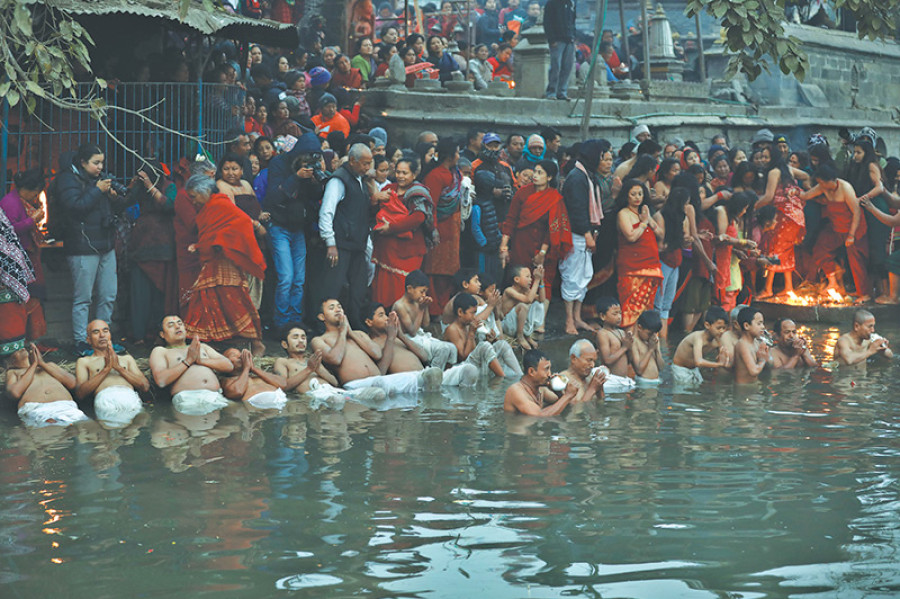National
Swasthani Brata Katha festival concludes
The month-long Swasthani Brata Katha festival dedicated to the Hindu Goddess Swasthani that began on the full moon day of the Nepali month of Poush concluded across the country this morning.
The month-long Swasthani Brata Katha festival dedicated to the Hindu Goddess Swasthani that began on the full moon day of the Nepali month of Poush concluded across the country this morning.
Devotees recite everyday a tale documented in the Hindu religious texts called Skanda Puran. The story involves a conversation between two mythical characters Kumar and Agastya Rishi, a revered Vedic sage.

Hindu devotees read stories dedicated to Goddess Swasthani, Shiva and other gods and perform rituals during the festival.
Swasthani is depicted as the four-handed deity possessing Chakra, Trishul, Sword and Lotus in each hand.
On the concluding day of the Brata Katha, 108 janais (holy threads), 108 beetle nuts, 108 fruits, 108 selroti (Nepali traditional sweet dish made of rice flour which is similar to doughnut in shape ), a collection of verities of flowers, red sandalwood, sindoor (vermilion powder), clothes, and cash are offered to Goddess Swasthani.
From the offerings, eight are given to husband, if there is no husband then to son, and if no son then to a friend of son and if no friend then it is to be released on the nearby river by the woman who observes fast during this period.

Hindu devotees observed the festival on the banks of the historic Salinadi in Sankhu on the north-eastern outskirts of Kathmandu. Tradition says observing Goddess Swasthani festival by strictly following rituals (fasting) unites separated couples. It also helps devotees get rid of illness, overcome trouble, get good spouse for those unmarried, and well-being of the husband if a woman is married. Some men also observe this festival.

Swasthani is the Hindu deity known for miraculously granting wishes made in a solemn state by the pure. The sacred book originated in ancient civilizations of Nepal. The book has 31 chapters which tell the story of life of various gods and goddesses. The story focuses mainly on Goddess Swasthani and Shiva.
Skanda Purana is the largest Mahapurana, a genre of eighteen Hindu religious texts. The text contains over 81,000 verses, and is part of Shaivite literature, named after Skanda, son of Shiva and Parvati.
Historians say Brahmins were the first to read this sacred book. The festival is popular here as Nepali Hindus read it more compared to Hindus from India.

Photos: Elite Joshi & Agencies




 9.7°C Kathmandu
9.7°C Kathmandu













